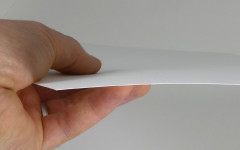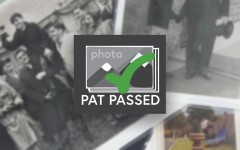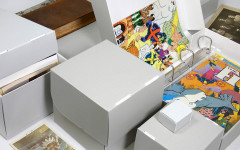What's the difference between 'Archival' & 'Acid-Free'?
 Many of the terms used around our site can be a little confusing if you don't have the background information. We use 'Acid-Free' and 'Archival' as terms to help people make a decision on what's best for their storage project, but what are they and what's the difference?
Many of the terms used around our site can be a little confusing if you don't have the background information. We use 'Acid-Free' and 'Archival' as terms to help people make a decision on what's best for their storage project, but what are they and what's the difference?
What does 'Acid-free' actually mean?
Acid-free means that at the point of manufacture, the material, whether that be board, paper, film or other, are pH neutral. This is usually around 7, sometimes a little higher making them slightly alkaline (usually as the result of an alkaline buffer). This matters because acid can cause damage to items, particularly paper, when in long term storage, often referred to as archived.
But, importantly - this doesn't mean that the 'acid-free' material will stay acid-free, and this is where you need to pay attention! Many materials will claim to be acid-free, and perhaps they were when they were made, but some inferior materials may contain impurities or chemicals that mean they will quite quickly become acidic in time. These might be plasticisers in PVC, lignin in paper pulp, or other impurities and chemicals in coatings or glues.
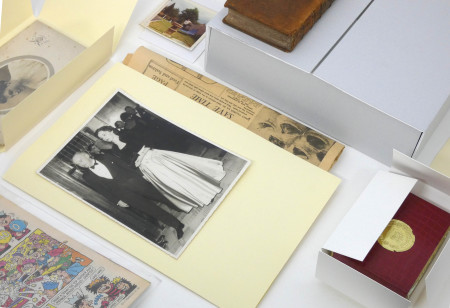
This is why higher grade materials, such as those available on our site, might be a little more expensive. To remain acid-free, boards and papers need to have the stuff removed from their raw materials that will eventually become acidic, or accelerate degradation, this also includes anything added such as glues, sizing, bleaches etc. Plastics need to be inert, which means they will not react with materials or the environment. You might also want to read about buffering in paper, as this also helps prevent acid development and migration.
What does Archival mean?
In the truest sense, and the way we use it, is that if we call something 'archival' then it's safe to store your items long term, it won't harm and it will protect. It makes sense, if something is to be stored or 'archived' then the material should be 'archival'. But there is a problem - there is no actual standard required for the word 'archival' and it is used to describe for products and materials that probably shouldn't be called such elsewhere.
Having read what Acid-Free means above, you'll now know that an acid free box (or backing board, or envelope etc) might not necessarily stay acid free. So how is this archival? It's not. Without any standards to comply to, 'Archival' when used to describe a material can unfortunately be meaningless.
So what is the difference between Archival and Acid Free?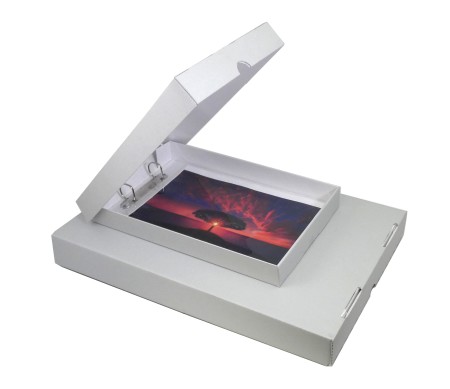
'Acid-free' is a measurement, if a material is acid-free it should be around pH 7, maybe a little higher (especially if they are buffered), when manufactured. But, this can change as it's only based on the material when it was made, some 'acid-free' materials can become acidic quite quickly, or may even have acidic glues or coatings applied. 'Archival' really doesn't mean a lot because there is no standard or measurement for materials to comply to. Unfortunately, some suppliers may, knowingly or unknowingly, be calling materials and products 'Archival' when actually they could harm the items stored. We do not do this, if we call something 'Archival' then you can rest assured that you can archive to your heart's content.
What should you look for?
Instead of looking for 'Archival' you should be looking for high specification materials and standards of manufacture or testing that prove the material is suitable. If an item is listed as 'archival' and 'acid-free' but with no other specification then this should be treated with caution.
Here are a few examples of actual standards for 'archival' boards and papers:
- ISO9706 Is an international standard for the permanance of paper and board
- ISO18916 PAT test is a test performed on materials to show that they do not damage photographic materials. Much of what is tested is relevant to other items too. You can read about PAT testing here.
- ISO 6588-1:2021 Is a test on the pH value of papers
Buffering of paper and board is also usually (some exclusions apply) advantageous for long term storage. You can read more about why buffering matters here.

